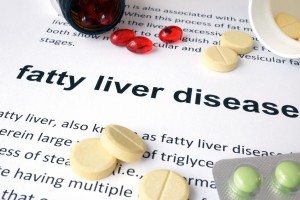Weight loss surgery can have many health benefits beyond just weight loss. In some cases, it can reduce or eliminate the negative effects of other diseases. Let’s take a look at liver disease in particular.
Nonalcoholic fatty liver disease (NAFLD) occurs when your liver has trouble breaking down fats, causing fat to build up in your liver. In a small number of people, this fat build up causes inflammation which can lead to cirrhosis or liver failure. The incidence of this disease has more than doubled in the past two decades in teenage Americans and adults. People who have obesity, high cholesterol, sleep apnea or Type 2 diabetes are at increased risk of developing NAFLD. A study in 2014 determined that bariatric surgery improved NAFLD. This determination comes as no surprise, as it makes sense that improving many of the risk factors for a disease would reduce the disease’s impact. The study found that surgery decreased fatty deposits in the liver and reduced liver inflammation. These effects allow for early stage damage to be notably improved while decreasing liver inflammation. However, as more damage is done to the liver over time, the damage becomes increasingly irreversible. The study concludes that bariatric surgery should be considered a treatment of choice for NAFLD patients with a body mass index (BMI) more than 35 and obesity-related comorbidities, or a BMI more than 40. While also resolving or greatly improving many other potentially lethal medical illnesses, bariatric surgery should be used in the fight against this liver disease.

Leave A Reply